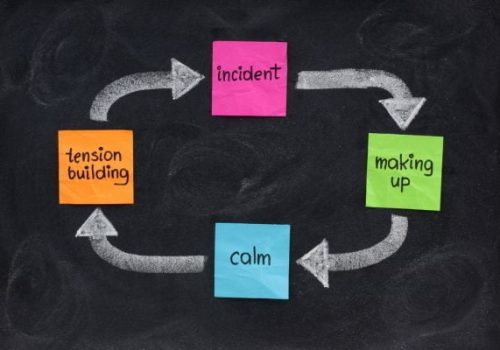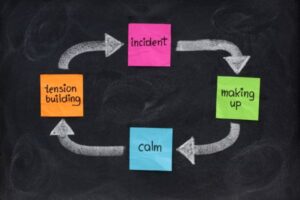Our Services









• Individual Therapy
• Couple Counseling
• Family Therapy
• Group Therapy
• Telehealth Counseling
• Life Skills Coaching
• Alternative Therapy
• Tests & Evaluations
• Ketamine Treatment
• Court Ordered Assessments
• Domestic Violence Treatment
• ESA Letters









• Individual Therapy
• Couple Counseling
• Family Therapy
• Group Therapy
• Telehealth Counseling
• Life Skills Coaching
• Alternative Therapy
• Ketamine Treatment
• Tests & Evaluations
• ESA Letters
• Court Ordered Assessments
• Domestic Violence Treatment




Our Services
• Individual Therapy
• Couple Counseling
• Family Therapy
• Group Therapy
• Telehealth Counseling
• Alternative Therapy
• Life Skills Coaching
• Tests & Evaluations
• Ketamine Treatment
• Court Ordered Assessments
• Domestic Violence Treatment
• ESA Letters




THERAPEUTIC APPROACHES

Here at Roots Counseling and Wellness, we use a multitude of counseling modalities to help individuals, couples, and families toward a path of learning, healing, growing, and strengthening. Provided below are some of the modalities that we use in our office.
- Dialectical Behavior Therapy (DBT)
- Internal Family Systems (IFS)
- Eye Movement Desensitization & Reprocessing (EMDR)
- Solution-Focused Brief Therapy (SFBT)
- Written Exposure Therapy (WET)
- Emotionally Focused Therapy (EFT)







THERAPEUTIC APPROACHES
Here at Roots Counseling and Wellness, we use a multitude of counseling modalities to help individuals, couples, and families toward a path of learning, healing, growing, and strengthening. Provided below are some of the modalities that we use in our office.
- Dialectical Behavior Therapy (DBT)
- Internal Family Systems (IFS)
- Eye Movement Desensitization & Reprocessing (EMDR)
- Solution-Focused Brief Therapy (SFBT)
- Written Exposure Therapy (WET)
- Emotionally Focused Therapy (EFT)



HELPING PEOPLE THROUGH
We help individuals through all sorts of difficulties and topics. Our fun Word Art shows many different topics we can work with you through toward your healing in therapy.






In a Crisis?
If you are in danger or an emergency, please dial 9-1-1 to reach emergency response services. If you are struggling with thoughts of suicide, know that you are not alone. Please seek help as soon as possible. Other helpful service numbers are provided below:
Emergency Response Services: 911
Suicide & Crisis Lifeline: 988
University Crisis Line (UNI): (801) 587-3000
National Domestic Violence Hotline: (800) 799-SAFE (7233)




In a Crisis?
If you are in danger or an emergency, please dial 9-1-1 to reach emergency response services. If you are struggling with thoughts of suicide, know that you are not alone. Please seek help as soon as possible. Other helpful service numbers are provided below:
Emergency Response Services: 911
Suicide & Crisis Lifeline: 988
University Crisis Line (UNI): (801) 587-3000
National Domestic Violence Hotline: (800) 799-SAFE (7233)
Ketamine Treatment
Ketamine, originally used as an anesthetic, is now being explored as a treatment for mental health issues like depression and PTSD. It works much faster than traditional antidepressants, often bringing relief within hours. Ketamine affects brain chemicals, helping to form new connections between brain cells. When used alongside talk therapy, these new connections can make it easier for people to change negative thoughts and feelings. The effects of ketamine can also help people feel less overwhelmed during therapy, allowing them to better engage with their therapist. Overall, combining ketamine with therapy can lead to more effective treatment outcomes.


Ketamine Treatment
Ketamine, originally used as an anesthetic, is now being explored as a treatment for mental health issues like depression and PTSD. It works much faster than traditional antidepressants, often bringing relief within hours. Ketamine affects brain chemicals, helping to form new connections between brain cells. When used alongside talk therapy, these new connections can make it easier for people to change negative thoughts and feelings. The effects of ketamine can also help people feel less overwhelmed during therapy, allowing them to better engage with their therapist. Overall, combining ketamine with therapy can lead to more effective treatment outcomes.

Domestic Violence Treatment
Domestic violence involves harmful behaviors by one person towards another in a close relationship, like hitting or controlling. Group therapy can help people who commit domestic violence by teaching them better ways to manage their emotions and behaviors. In these therapy groups, participants learn skills like mindfulness to stay calm and emotional regulation to control their anger. They also learn how to improve their relationships and communicate more effectively. This therapy helps them understand their actions, make positive changes, and build healthier relationships, reducing the chances of future violence. By learning these new skills, individuals can break the reactive cycle of violence, preventing automatic aggressive responses and promoting thoughtful, non-violent interactions instead.

Domestic Violence Treatment
Domestic violence involves harmful behaviors by one person towards another in a close relationship, like hitting or controlling. Group therapy can help people who commit domestic violence by teaching them better ways to manage their emotions and behaviors. In these therapy groups, participants learn skills like mindfulness to stay calm and emotional regulation to control their anger. They also learn how to improve their relationships and communicate more effectively. This therapy helps them understand their actions, make positive changes, and build healthier relationships, reducing the chances of future violence. By learning these new skills, individuals can break the reactive cycle of violence, preventing automatic aggressive responses and promoting thoughtful, non-violent interactions instead.






